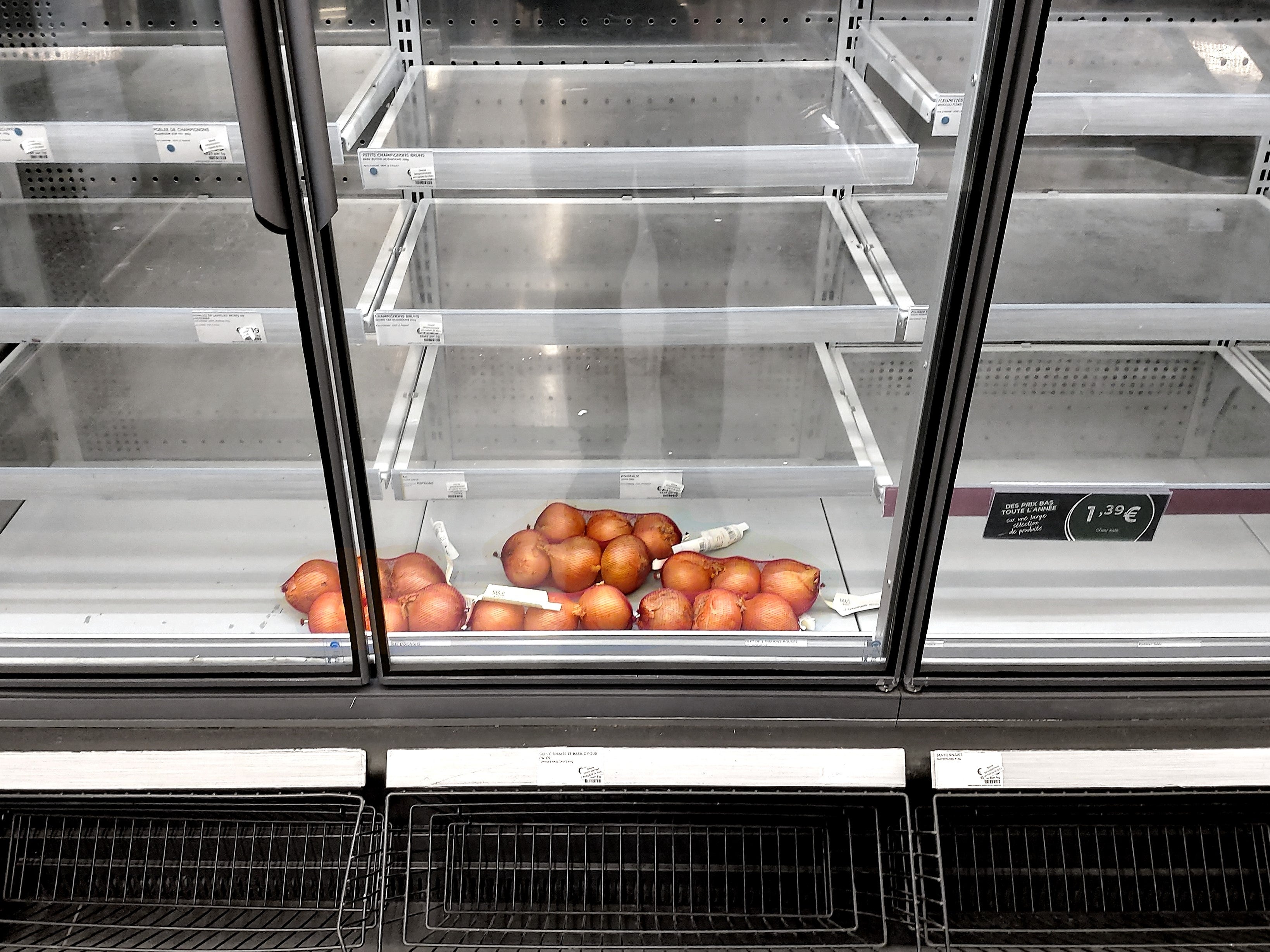‘Quelle horreur’: This is not just a shortage, this is an M&S Paris Brexit shortage
Shoppers in the chain’s stores in the French capital are feeling the bite of the UK quitting the EU, reports Anthony Cuthbertson


It’s 10am on Boulevard Saint-Michel in central Paris, and Marks & Spencer is unsettlingly empty. It’s not just the shelves that are bare, but also the shop itself, with not a single customer in any of the aisles.
Two workers chat idly by the crisps section – one of the only corners of the shop that is stocked. “Some days there are small deliveries but it’s always a surprise,” one tells me when I ask whether there will be any new stock soon. “It’s been like this for the whole of January, and the worst thing is we don’t know when it’s going to get better. People are very unhappy about the situation.”
It has been more than two weeks since the Brexit transition period ended, and the stark reality of the UK’s withdrawal from the European single market is just as pronounced across the rest of France as in the M&S stores scattered throughout the capital.
Despite the anglo-culinary stereotypes, the vast majority of customers at the Saint-Michel shop tend to be French people who come to buy English food. But since the shelves emptied over new year, the usual crowds have vanished.
“People still call up, asking us if we have this or that. But always we have to say no. It is a nightmare,” says the worker, who prefers not to be identified.
There are more than a dozen M&S food stores in Paris, most of which have popped up in recent years to meet the French appetite for crumpets, custard and Cumberland sausages – and all locations are facing the same stock shortages.
Less than 10 minutes walk away, within the famous arcades of the Marché Saint-Germain, the shelves are similarly scant.
“Quelle horreur,” says one shopper as she peruses the barren aisles with an empty basket.
Another shopper has found a tin of biscuits, but is equally unimpressed.
“It’s not funny at all,” says Catherine Arnault, a local retiree. “I’m fed up with this Brexit. I can’t find anything that I’m looking for.”
Several signs on the doors of empty fridges blame the disruption on “the new Brexit regulations”, which have placed strict new customs protocols at the UK-France border for any products containing meat or dairy.
Marks & Spencer, whose 19 Paris shops are run as franchises by local retailers, appears as clueless as its shop workers when asked when the situation might improve.
“As we are transitioning to the new processes, it is taking a little longer for some of our products to reach stores,” the company said in an official statement shared with The Independent. An office employee lamented privately the “mind-boggling complexity” of the new red tape now that there is no longer frictionless trade between the two countries.
It is an industry-wide issue that turns even something as simple as transporting a sandwich across the border into a logistical and bureaucratic headache.
If the cold cuts of meat or cheese used in the sandwich come from the continent, they need to comply with the complex rules of origin when they return. On top of these requirements, which take up 50 pages of the Brexit trade deal, the goods also need to meet stringent new sanitary checks when passing through customs. Despite the four-year period the government had to prepare for such an eventuality, UK and French ports are not set up to deal efficiently with the level of freight that comes with supermarket distribution.
For a big business such as Marks & Spencer, meeting these new demands is a huge drain on resources and requires new dedicated teams set up specifically to deal with it. For smaller operations, it could be business-ruining.
All this new paperwork – and it is paper, as the system is yet to be fully digitised – contradicts the “tariff- and quota-free deal” that the government boasted about when a last-minute deal was secured with the EU on Christmas Eve.
Marks & Spencer’s chief executive described it as a free-trade deal in name only, with HMRC estimating the cost of the new procedures to UK businesses will be £7bn.
“At a headline level, the free-trade agreement is tariff-free, [but] the scope, ambiguity and complexity around rules of origin impose a tariff burden which will impact British businesses,” Steve Rowe said this month, during the company’s quarterly results announcement.
“While for big businesses there will be time-consuming workarounds, for a lot of others this will mean paying tariffs or rebasing into the EU.”
At the other end of the chain of command, the shop worker in Saint Michel remains oblivious as to how long these workarounds will take.
“We’re hopeful the food will come back eventually,” he says, pausing for a moment. “Fingers crossed.”

Join our commenting forum
Join thought-provoking conversations, follow other Independent readers and see their replies
Comments